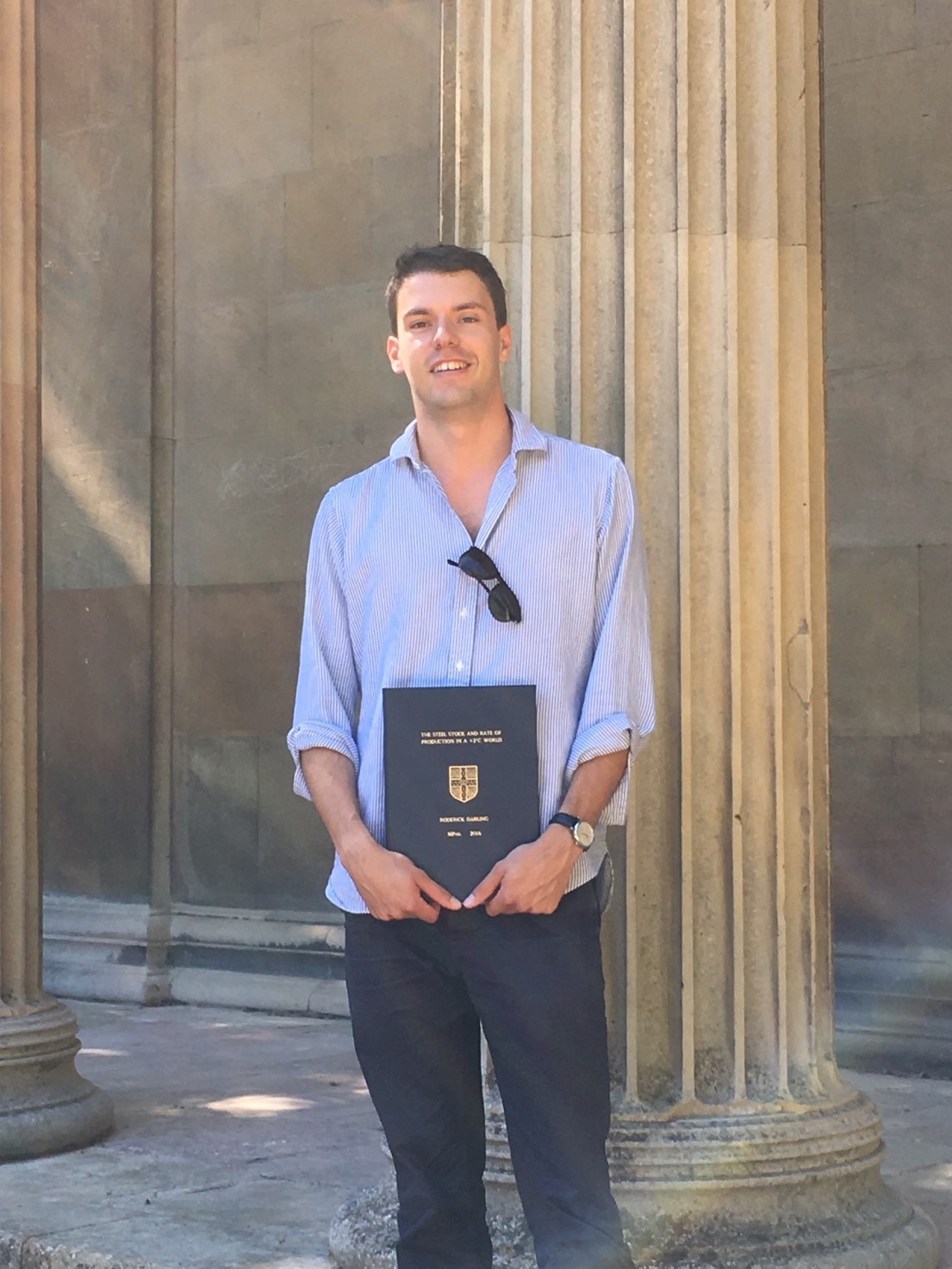Roderick Darling, Downing College, 2015-2016
Roderick Darling, Downing College, 2015-2016
Before starting ESD, I was working with BHP Billiton, a mining company, where I spent a number of years managing projects at an iron ore mine and working with the owner’s team in managing the construction of a gas-fired power station. I was based in the Pilbara, a desert region in central Western Australia – it was a big change when I arrived in lush Cambridge!
My previous study had been a Bachelor of Commerce and a Master of Engineering, both of which I was awarded by the University of Melbourne.
Dissertation title:
Steel Stock and Rate of Production in a +2oC World
Students report:
Why did you do the ESD MPhil?
When I was working on the power station project, I saw how the decision was made to move away from a simple gas power station, to a combined-cycle power station, (where the exhaust heat is used to raise steam and to run additional steam turbines) almost doubling the efficiency of power generation. Because this power station consumes less gas, it is both less expensive to run and it emits much less carbon.
This project opened my eyes to the possibility of decoupling emissions from economic activity, this really sparked my interest and curiosity about sustainable development. I saw ESD as a terrific way to further my understanding of the intersection between economics, policy and the environment.
How did it help you?
ESD is terrific because it is so flexible. There is the scope to focus on the micro area like building physics, or a macro area like global climate change policy.
I was interested in energy, policy, environmental science and economics and selected subjects accordingly. This broad approach has given me a great foundation for understanding the challenges in this space.
What are you doing now?
Since completing the course, I have moved back to Melbourne, Australia. In the new year I will be starting work as an Associate at McKinsey & Co., where I hope to apply the skills and knowledge I acquired through the course.

